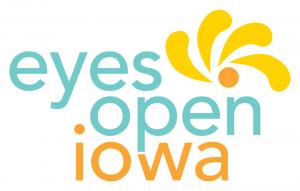Cardea provides a range of TA services to support school districts in the adoption and implementation of sound sexual health education policies and procedures. Through direct services, training, and capacity building, Cardea assists districts in adopting best practices, building the capacity of their faculty and staff, and engaging their parents and community. TA begins with the dissemination of policy, research, practices, and resources through peer-learning communities/communities of practice. Additional individualized district TA supports system changes, capacity building, training and education that results in significant changes to practices within a district and changing community perceptions and norms.
Training Hub
The Sex Education Collaborative Training Hub lists trainings for sex educators, facilitators, and other professionals on best practices for sharing important information with clients and the public. From teaching anatomy inclusively to effectively addressing bias in the classroom to addressing racial justice and equity in sex education, the Training Hub includes trainings, technical assistance, and policy support from state, regional, and national leaders in the field of sex education.
Please note: The Training Hub includes both in-person and online professional trainings. If you see a training you are interested in and it isn’t listed as virtual, please reach out directly to any of our members to find out what's possible!
Trainings Offered by State-Based and National Organizations
Displaying results 101 - 105 of 130At EyesOpenIowa, we specialize in helping educators, schools, and organizations deliver accurate, inclusive, and policy-aligned sexual health education. With decades of experience, our dedicated training and leadership teams work closely with you to develop a customized plan that meets your specific needs. Here's how we can support you:
Curriculum Alignment to Policies and Standards We ensure your curriculum is fully aligned with state and federal policies, as well as the latest educational standards, so your program is compliant and impactful.
Curriculum Development We collaborate with you to create a robust, tailored curriculum that incorporates the latest research and best practices, ensuring it is both effective and engaging.
Curriculum Review for Cultural and LGBTQ Inclusivity Our team assesses your content for cultural relevance and LGBTQ inclusivity, providing recommendations that foster an environment of respect and understanding for all students.
Curriculum Review for Medical Accuracy We verify the medical accuracy of your curriculum, ensuring all health-related content is up-to-date and evidence-based, promoting healthy decision-making.
Scope and Sequence Development and Review We help you develop or refine your scope and sequence to ensure learning objectives are met in a logical, structured manner, maximizing educational impact.
Partner with EyesOpenIowa to elevate your curriculum with customized, expert support, ensuring it is comprehensive, inclusive, and meets the highest standards of educational excellence.
Affirmative Consent
Cultural perspectives, organizational policies, and local and national laws are changing to embrace the principle of Affirmative Consent. A culture of consent is one in which it is the norm, not the exception, for all persons to obtain consent prior to sexual experiences. Many educators feel this policy shift is a step in the right direction and has the potential to create positive change.
Affirmative Consent policies can:
- Build communication skills
- Construct a respectful frame about personal choice
- Help prevent sexual assault
- Address negative, outdated gender roles
Objectives of this training:
- Explain how Affirmative Consent contributes to changing youth norms and attitudes around sexual relationships.
- Deliver a pitch to advocate for the inclusion of Affirmative Consent content in educational settings.
- Develop strategies for addressing youth criticism of Affirmative Consent.
- Describe the key messages, critical talking points, and different activities included in the Teaching Affirmative Consent supplement's lesson plan.
- Describe at least three ways to reinforce Affirmative Consent messaging within related activities and classroom discussions.
- Indicator 2 (K-12): Demonstrate the ability to effectively respond to three different types of challenging questions. (S)
- Indicator 1 (K-12): Describe three health (e.g. physical, social and/or emotional) and/or academic benefits of sex education for young people
Healthy Teen Network customizes techincal assistance and support to meet your unique needs.
Areas of expertise span a wide range of topics across adolescent sexual and reproductive health, evidence-based approaches, curricula, working with diverse youth, training adult professionals, innovation and research, human-centered design, advocacy and public policy, strategic planning, sustainability, and more.
Human Trafficking 101
This is the first in a series of eLearning units focused on human trafficking. Subsequent units include content specifically for medical providers, educators, parents, caregivers, faith-based professionals, and other youth-serving professionals to better understand the role they can take in addressing sex and labor trafficking. Via an interactive, self-paced unit, participants will explore critical elements of sex and labor trafficking and steps they can take to support victims and survivors in your community. This unit promotes learning though stories, activities, and short quizzes.
Through Healthy Teen Network’s partnership with the University of Maryland School of Social Work’s Prevention of Adolescent Risk Initiative, we are pleased to share resources on human trafficking. Although these resources are focused on specifics for the state of Maryland, anyone from any state can learn about human trafficking as well.
Additional Trainings offered by out-of-state organizations
- ‹ previous
- 29 of 30
- next ›
What’s Triggering Our Teens? Intimate Partner Violence Edition
Participants will gain knowledge of how intimate partner violence impacts the mental, sexual and reproductive health of young people who witness and/or experience it. Participants will brainstorm strategies to intervene and learn about local, state, and national resources.
This training is designed for:
- Educators
- Teachers
- Substitute Teachers
- Counselors
- Coaches
- Parents
- Clergy
- Community Workers
- Healthcare Providers
- Healthcare Staff
- Clinicians
- Indicator 1 (K-12): Describe three distinguishing characteristics between healthy and unhealthy relationships, involving family, friends, and/or romantic partners.
- Indicator 2 (K-12): Explain three ways that healthy relationships can positively impact personal well-being.
- Indicator 5 (K-12): Describe three ways to help students set and respect personal boundaries in relationships.




